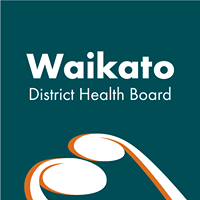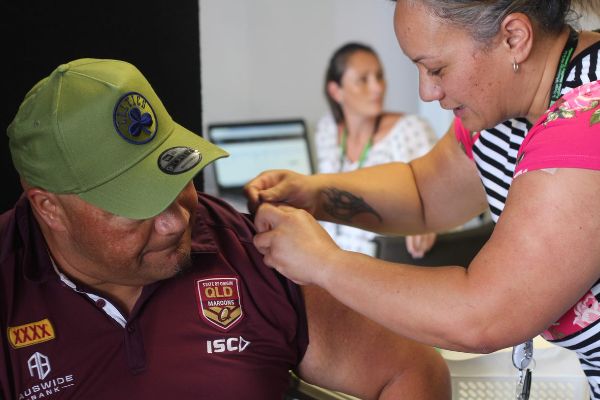Waikato Reaches 100,000 COVID-19 Cases As Experts Urge Booster And Flu Vaccinations Ahead Of Potential Co-infection

There have now been more than 100,000 cases of COVID-19 in Waikato since the pandemic began, with the vast majority this year due to the widespread outbreak of the Omicron variant.
The high rate of vaccination achieved prior to Omicron has helped to reduce the number of presentations and hospitalisations, with extensive planning across hospitals enabling dedicated spaces to be set up to provide care for COVID-19 positive patients.
But as our borders open and other serious winter illnesses such as flu and respiratory syncytial virus (RSV) arrive and begin to spread, DHBs are expecting a further increase in pressure across primary and secondary healthcare services.
The Waikato saw good rates of vaccination for the initial two COVID-19 vaccinations for those aged 12 and over with 93% having had two doses, however the rate for booster doses remains at 68% for this group. This means over 207,000 people have had a booster shot, but there are still another 94,000 due to get theirs.
Of concern also, is the 5-11 year age group who became eligible for a COVID-19 vaccination at a later date and close to the Omicron outbreak. They have lower vaccination rates than those aged 12 and over with only 46.9% receiving their first dose and 18.4% receiving their second (this group does not currently require a booster dose).
For Māori aged 5-11 the rate is even lower at 31.7% receiving their first dose and 9.1% receiving their second. Waikato DHB is encouraging parents to check with their GP or pharmacy to make sure their children are up to date on immunisations, and to get their vaccinations as soon as they are due.
One of the contributing factors affecting booster doses and vaccination for those more recently eligible has been the required 12-week stand down period before another vaccination for anyone who had contracted COVID-19. However, for a growing number, this 12-week period is now up, and Waikato DHB is strongly urging those in need of their booster to get one at their GP, local pharmacy, Māori or Pacific health provider, or at one of its community or mobile vaccination clinics.
“The 12-week stand down is sensible but we are aware that some people may be thinking, well I’ve had COVID-19 now, is it really worth another vaccination. Yes it is. The body develops some resistance following infection but it is not to the same level or duration as that provided by vaccination,” says Dr Richard Vipond, Waikato DHB Medical Officer of Health.
“We have seen extensive evidence overseas that in the months after having COVID-19, a number of people are experiencing re-infection. As we head into winter, with flu now spreading through the community it’s very important to protect yourself and your whānau with the flu vaccine.”
“You may have heard of people that experienced mild symptoms with COVID-19, particularly if they had received their booster dose. However, the impact of people having COVID-19 and flu together is something we are very concerned about,” Dr Vipond says.
“It is important to take any respiratory illness such as COVID-19, flu or RSV very seriously and take adequate time to recover.”
Over the colder months, New Zealand traditionally experiences more sickness in the population. For the past two years the country has become better at following public health guidance, and now is not the time to become complacent.
Remember to stay at home if you are unwell and practice good hand hygiene. When you are in public, continue to wear a facemask and maintain physical distance from others when possible.
Vaccination remains your best defence against winter illnesses, COVID-19, flu and MMR (measles, mumps and rubella) vaccines are essential to protecting your health and that of the wider community.
It is necessary to get an updated flu vaccine each year as they are tailored to provide protection against the version(s) of the virus going around now.

Influenza vaccinations are free to those aged 65 and over, Māori and Pacific people aged 55 and over, adults with health conditions such as asthma and diabetes, children aged 4 years or under who have a history of significant respiratory illness, and pregnant women. Those who do not qualify for the funded vaccine are encouraged to buy one through their chosen provider.
DHB mobile vaccination clinics across the Waikato are now providing free flu vaccinations for those eligible, MMR for ages three-years and over, as well as COVID-19 first, second and booster doses.
Contact your GP, local pharmacy, Māori or Pacific health provider, and for weekly information on all DHB mobile vaccination clinics go to:
https://www.waikatodhb.health.nz/your-health/covid-19-in-waikato/covid-19-vaccination/mobile/
For more information call Waikato DHB on 0800 220 250 or visit www.waikatodhb.health.nz/immunise


 Michael King Writers Centre: Shilo Kino Awarded 2025 Shanghai Writing Residency
Michael King Writers Centre: Shilo Kino Awarded 2025 Shanghai Writing Residency Burnett Foundation Aotearoa: S.L.U.T.S Might Be The Answer To Ending Syphilis Outbreak
Burnett Foundation Aotearoa: S.L.U.T.S Might Be The Answer To Ending Syphilis Outbreak Aotearoa Covid Action: Pharmac Urged To Widen Access To Covid Vaccines
Aotearoa Covid Action: Pharmac Urged To Widen Access To Covid Vaccines Howard Davis: Dick Frizzell’s Hastings & Studio International Revisited In Wellington
Howard Davis: Dick Frizzell’s Hastings & Studio International Revisited In Wellington Heritage New Zealand: New Education Resource On Ōtūmoetai Pā Released
Heritage New Zealand: New Education Resource On Ōtūmoetai Pā Released Bowel Cancer NZ: Broken Promise, Lost Lives - Govt’s Bowel Cancer Screening Pledge 98% Undelivered
Bowel Cancer NZ: Broken Promise, Lost Lives - Govt’s Bowel Cancer Screening Pledge 98% Undelivered